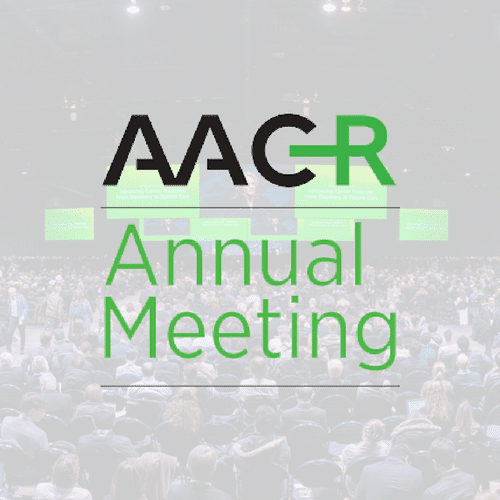News: A Reflection on AACR Annual Meeting
Each year, the AACR Annual Meeting brings together over 20,000 academics, educators, students, laboratory researchers, translational researchers, clinicians, health care professionals, and pharmaceutical and industry representatives to share ideas and accelerate cancer research progress.
The conference consists of symposiums, poster sessions, and panels – each fostering great discussion on topics ranging from early detection and diagnostic tools to tumor biology and immune evasion to novel therapeutics and approaches in patient care. This year, the AACR Annual Meeting was held at the McCormick Place Complex in Chicago, Illinois from April 14 – 18. Many of the talks and slides can be found on webcast on the AACR website.
Our team was on site to cover the event for Instrument Business Outlook (IBO), where we focused on useful products for the modern laboratory. We were particularly interested in the latest advances in analytical instrumentation, such as mass cytometers and next-generation sequencers. Nevertheless, we were also thrilled to attend presentations spotlighting the latest developments in cancer research. The opening plenary session featured updates on immune checkpoint therapies, while another session discussed how advancements in cancer genomics can lead to the identification of new therapeutic biomarkers and more personalized medicine. Other symposiums focused on cancer metabolism, liquid biopsies, immune-oncology, the tumor microenvironment, and more. The Annual Meeting also held a series of distinguished lectures featuring guest speakers such as Dr. Jennifer Doudna, who spoke about the history of CRISPR/Cas tools, their use in discovery research, ethical implications, and potential applications in other industries.
Of particular excitement was the plenary clinical trial symposium entitled “Immunotherapy Combinations: The New Frontier in Lung Cancer.” Here, Merck and Bristol Myers Squibb released their clinical trial data, KEYNOTE-189 and CheckMate -227, respectively. Both companies announced their combination treatments for first line non-small cell lung cancer with either pembrolizumab (Keytruda) + chemotherapy or nivolumab (Opdivo) + ipilimumab (Yervoy). Applause from the session could be heard from the exhibit hall across the conference center! KEYNOTE-189 met its primary endpoints of overall survival (OS) and progression-free survival (PFS) irrespective of PD-L1 expression, while CheckMate -227 met its PFS endpoint (OS data pending) for patients with high tumor mutational burden. Though difficult to compare directly due to variation in clinical trial design and biomarker used, these data have wide-ranging implications for competitor immunotherapies and future lung cancer standard of care. These results have now been published in The New England Journal of Medicine and were immediate market movers.
The AACR Annual Meeting also had an exhibit hall that was full of vendors lauding novel technologies, reagents, instruments, and services to support laboratory and clinical research. In addition, many pharmaceutical companies had exhibits showcasing their drug pipelines and promoting new collaborations. Our team scoured the exhibit floor – visiting booths and attending spotlight theater exhibitions – to learn about new products and connect with industry experts and suppliers.
One major theme among exhibitors was tools for dissecting tumor heterogeneity: 10X Genomics launched their single-cell CNV solution for ChromiumTM system, Natera presented their SignateraTM (RUO) platform for ctDNA biomarker personalization, and NanoString highlighted their upcoming high plex digital spatial profiling technology. Bio-Rad discussed their QX ONETM droplet digital PCR system, and Fluidigm showcased their HyperionTM Imaging System. Many of these technologies enable scientists to gain further understanding of the transcriptomics and proteomics of the tumor microenvironment at single-cell resolution and can potentially lead to novel biomarker discoveries and tumor response predictions. Researchers who had early access to these technologies presented posters that validated the tools and offered exciting insights in cancer biology.
As approximately 39.4% [1] of Americans are diagnosed with cancer at some point in their lifetimes, the theme of this year’s meeting, “Driving Innovative Cancer Science to Patient Care” was fitting. All in all, the meeting was an immense success in stimulating conversation about the state of cancer research and care. The next AACR annual meeting will be held in Atlanta, Georgia from March 20 – April 3, 2019.
[1] National Cancer Institute (NCI)




